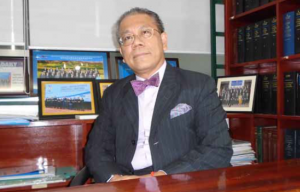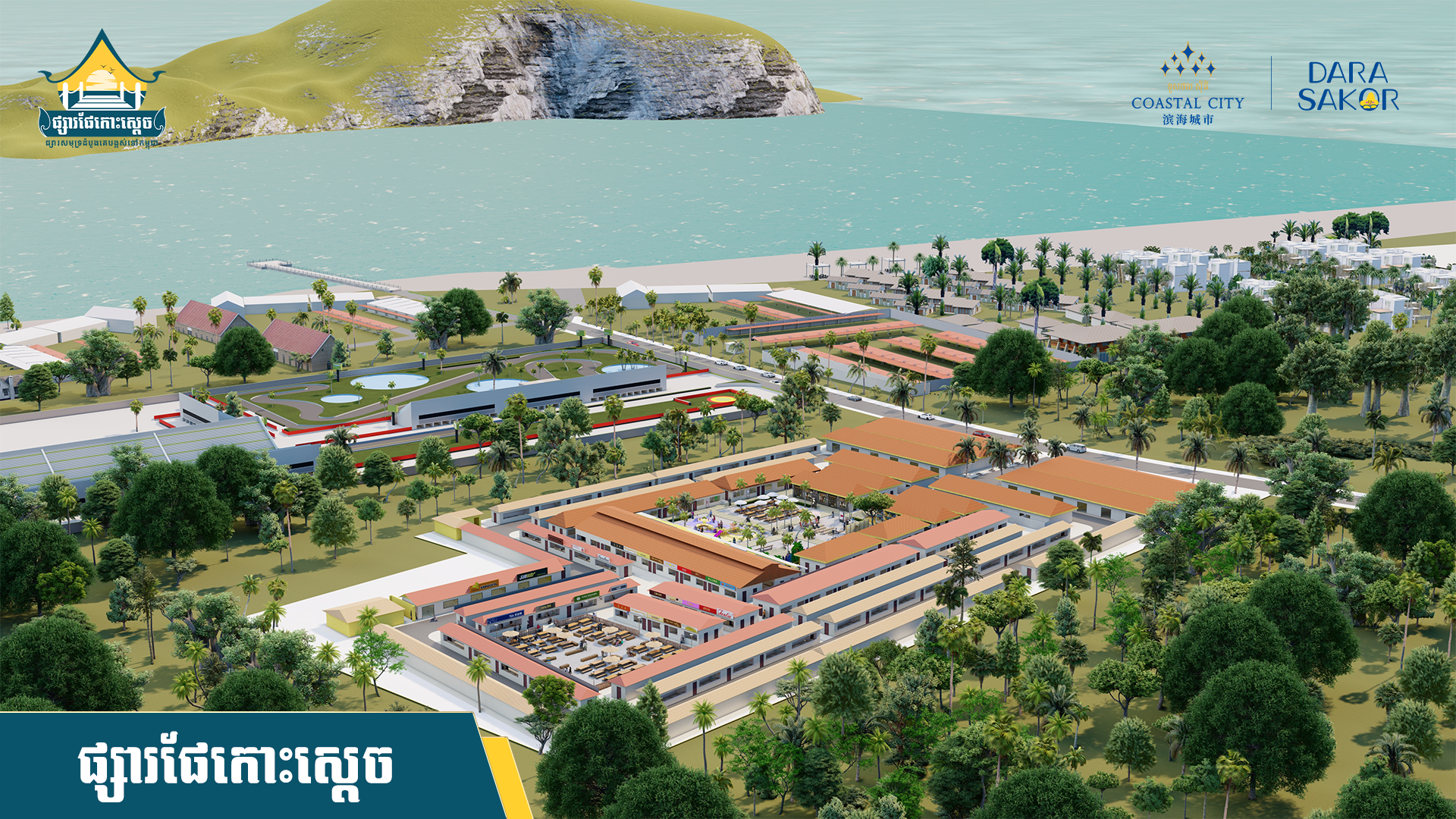The Cambodia and other Asean member states will integrate into the economy and cultural community on 31 December 2015. This will open the profit of the entire economy to all of the 600 million people in this region, allowing more shared benefits and improved living standards for all.  Dr. Sok Siphana discusses how this opportunity will challenge and benefit Cambodia. How does Cambodia prepare for the Asean economic community integration at the end of this year? Dr. Siphana: Cambodia has already prepared for the Asean integration but now we look back in the context of the last 10 years of Cambodian economics. Particularly, in the previous decades, Cambodian Prime Minister Hun Sen pushed Cambodia to become a member of the World Trade Organization (WTO). In the context of negotiation, Cambodia opened some policies such as tariff cuts, free flow policies for investors, and some freedoms within major industries. Cambodia has improved in the last 10 years and become very friendly to foreign investment. So, Cambodia has in many ways already prepared for the Asean integration, now we face the second phase of a deeper integration. The regional economic integration is to join markets all over the region. Our problem is to communicate with the investors effectively because Cambodia has a medium to small market, only 15 million in population, and most of these people do not have enough money to invest. Therefore, Cambodia needs to tap into the biggest markets before the Asean integration. Cambodia will succeed in its goals and become the member of a region which has more 600 million people. Our prime targets are not places such as Indonesia, Philippines, and Brunei - which have many islands and are a long distance from Cambodia. But when we think about our position in the sub-region with Laos, Vietnam, Thailand, and Myanmar, there are more than 200 million people easy to access. So, Cambodia has more opportunities when we open our policies to welcome investors to Cambodia. The investors always expect to sell their products to Europe, America, China, and Japan before coming here. But now, the investors come to Cambodia to tap into more markets within the subregion. Why do the investors come here? What special factors does Cambodia have? Dr. Siphana: Why? Because Cambodia has free policies for investors. Before negotiating to be a member of WTO, Cambodia had already opened its market. With this point, Cambodia’s policies were opened to permit investors to own 100 percent of their Cambodian-based company. Generally, if we run a business in any country, we want to manage and control that business entirely, and in Cambodia this is possible. We have one problem in that foreigners cannot buy land, but we have prepared and corrected some laws which permit foreigners to buy above the first floor of apartments. Therefore, some problems have not yet been solved because they relate to Cambodia’s constitution, specifically foreign land ownership limitations, but we can solve these problems somewhat by allowing them investment opportunities in Cambodia. Cambodia between the big markets such as Vietnam, Thailand, and Myanmar meaning we will see a lot of cross-economy traffic. And Cambodia is one of the joint regional product producers. How do Cambodian people and entrepreneurs catch this opportunity? Dr. Siphana: In the last 10 years, Cambodian entrepreneurs and intellectuals have a chance to gain more capacity and skills because of the free market. The development of the country is not only building the bridges and roads so that it is easy to walk, but also gaining knowledge and skills. The opening of free markets gives a chance for Cambodian youth to study abroad and apply equally in the global society. Learning from other countries is fundamental to their success when competing in the region. Local producers are worried they will lose their market share when Cambodia joins ASEAN - because only 2 percent of enterprises produce products to correct quality and safety standards. What do you think? Dr. Siphana: I would like to disagree with this. What have we achieved since the civil war ended? Take a look at new enterprises we are capable of, like Khmer TV series, movies or videos, and digital marketing. If we try to survive on only 2 percent of possible products, we will die. But in the last 20 years, Cambodia did not have 50 thousand different enterprises available. Today we do. Because of this growth in opportunities, we cannot say that Cambodia has only 2 percent of our businesses able to compete with others. Therefore, the important thing is providing technology and education that will allow Cambodian youth to compete on even ground. The opening of the economy has given abilities and new skills to Cambodian people and entrepreneurs for 20 years already. They grew the businesses and studied from them. There were not many entrepreneurs before, now we have two percent of 50 thousand enterprises which are able to compete. And what the Cambodian people are best able to compete in is technology. We did not have abilities to research the technology before, but now we have human resources who are quickly able to compete when we have the right technology. For example; we can produce a modern camera and use it very well. Recently, we can buy modern technology and packing machines for our factories. So, don’t think that we are lost in this sector. In the context of fast development where technology can step us forward faster than ever. Another example is Keo Mom, now the CEO of LyLy Food Industry. She had a dream for her business that went beyond making a stamp on the industry. Before her company produced a small amount of products and worked very hard to survive, but now her company can export to the United States, Canada, and other countries with modern technology. So that means we are able to import technology, and improve our industry fast. We were dependent on ourselves for the last 20 years. However, now our young generation are knowledgeable enough to tell their parents what technological systems they need to buy to improve their business. Therefore, a Thai company that has been around for the last 20 years is not automatically better than us. If the world has modern technology available, Cambodia can buy it, Thailand can buy it, and also Vietnam can buy it. That is why I want Cambodian enterprises to use technology as the power to overcome our competitors. The foreigners are not better than us, and we are not cleverer than them. But, technology makes the company and entire enterprise smarter. Now, Cambodia can build 20 storey skyline buildings. The ground breaking is done by Cambodians using machines and technology. This is just one example, but we can follow up with many others. What if all skilled Khmer labour is absorbed after the Asean integration and we don’t have enough human resources? Dr. Siphana: I think that if we don’t have knowledge, we have to look for the knowledgeable. If we are ignorant, we have to work with intellectual people. If we don’t have any money, we have look for those that have. We don’t think about the competition, at first, we think about the cooperation. After cooperating, we have some basic knowledge to learn and grow from. It doesn’t mean we steal skills from others, but we have worked with them for a few years, and now we can run the business ourselves. Don’t think we cannot compare ourselves to others. We have already come a long way - because our country just finished the civil war only 20 years ago and since we have seen economic growth of 7 percent every year. There aren’t many countries that have done what we have done in 20 years. However, we have to recognize that we still have negative points as well. They know better than us in some cases, and have had more experience than us. With this in mind, it doesn’t mean we are unknowledgeable. We should not feel hopeless and jump off the bridge. We have to try our best to be better than others. There are so many technologies to study. Social networking (Facebook and Twitter) is fundamental knowledge today. But you do not take pictures of your birthday cake and post it on your business page - you must research about enterprises, talk about technology etc. These things will give more benefits than posting about useless things. During 1993, I worked as a law councilor of the UN. I was worried because there was no law documented, but now the government of Cambodia was asking me about the laws. I spent only a few days researching it. We went to cafés to research, because it had internet connection. Therefore, I think technology is crucial to modernization the economy. It is used it to strengthen our fundamental capacity. Then we have ideas and look for the partners who can understand. After that, we can do it by ourselves. It is said that Cambodia has already opened to the global economy. So, is the economic integration at the end of this year really going to change much beyond the status quo? Dr. Siphana: We haven’t integrated into the Asean economic community yet. But we have already prepared for some investors who are surveying the market. Even though it has not been opened yet, the growth of the economy is still progressing. Even if you don’t want it to, it will go forward. When the market has not been opened, Cambodia only has a 15 million population cap. This is the psychology. But when Cambodia is integrated, it will not be analyzed as a market that has 15 million. It will be analyzed as a country with 600 million. Realestate.com.kh is proud to support the CVEA's Property View publication. Click here to get your copy, or if you are interested to join the CVEA today.
Dr. Sok Siphana discusses how this opportunity will challenge and benefit Cambodia. How does Cambodia prepare for the Asean economic community integration at the end of this year? Dr. Siphana: Cambodia has already prepared for the Asean integration but now we look back in the context of the last 10 years of Cambodian economics. Particularly, in the previous decades, Cambodian Prime Minister Hun Sen pushed Cambodia to become a member of the World Trade Organization (WTO). In the context of negotiation, Cambodia opened some policies such as tariff cuts, free flow policies for investors, and some freedoms within major industries. Cambodia has improved in the last 10 years and become very friendly to foreign investment. So, Cambodia has in many ways already prepared for the Asean integration, now we face the second phase of a deeper integration. The regional economic integration is to join markets all over the region. Our problem is to communicate with the investors effectively because Cambodia has a medium to small market, only 15 million in population, and most of these people do not have enough money to invest. Therefore, Cambodia needs to tap into the biggest markets before the Asean integration. Cambodia will succeed in its goals and become the member of a region which has more 600 million people. Our prime targets are not places such as Indonesia, Philippines, and Brunei - which have many islands and are a long distance from Cambodia. But when we think about our position in the sub-region with Laos, Vietnam, Thailand, and Myanmar, there are more than 200 million people easy to access. So, Cambodia has more opportunities when we open our policies to welcome investors to Cambodia. The investors always expect to sell their products to Europe, America, China, and Japan before coming here. But now, the investors come to Cambodia to tap into more markets within the subregion. Why do the investors come here? What special factors does Cambodia have? Dr. Siphana: Why? Because Cambodia has free policies for investors. Before negotiating to be a member of WTO, Cambodia had already opened its market. With this point, Cambodia’s policies were opened to permit investors to own 100 percent of their Cambodian-based company. Generally, if we run a business in any country, we want to manage and control that business entirely, and in Cambodia this is possible. We have one problem in that foreigners cannot buy land, but we have prepared and corrected some laws which permit foreigners to buy above the first floor of apartments. Therefore, some problems have not yet been solved because they relate to Cambodia’s constitution, specifically foreign land ownership limitations, but we can solve these problems somewhat by allowing them investment opportunities in Cambodia. Cambodia between the big markets such as Vietnam, Thailand, and Myanmar meaning we will see a lot of cross-economy traffic. And Cambodia is one of the joint regional product producers. How do Cambodian people and entrepreneurs catch this opportunity? Dr. Siphana: In the last 10 years, Cambodian entrepreneurs and intellectuals have a chance to gain more capacity and skills because of the free market. The development of the country is not only building the bridges and roads so that it is easy to walk, but also gaining knowledge and skills. The opening of free markets gives a chance for Cambodian youth to study abroad and apply equally in the global society. Learning from other countries is fundamental to their success when competing in the region. Local producers are worried they will lose their market share when Cambodia joins ASEAN - because only 2 percent of enterprises produce products to correct quality and safety standards. What do you think? Dr. Siphana: I would like to disagree with this. What have we achieved since the civil war ended? Take a look at new enterprises we are capable of, like Khmer TV series, movies or videos, and digital marketing. If we try to survive on only 2 percent of possible products, we will die. But in the last 20 years, Cambodia did not have 50 thousand different enterprises available. Today we do. Because of this growth in opportunities, we cannot say that Cambodia has only 2 percent of our businesses able to compete with others. Therefore, the important thing is providing technology and education that will allow Cambodian youth to compete on even ground. The opening of the economy has given abilities and new skills to Cambodian people and entrepreneurs for 20 years already. They grew the businesses and studied from them. There were not many entrepreneurs before, now we have two percent of 50 thousand enterprises which are able to compete. And what the Cambodian people are best able to compete in is technology. We did not have abilities to research the technology before, but now we have human resources who are quickly able to compete when we have the right technology. For example; we can produce a modern camera and use it very well. Recently, we can buy modern technology and packing machines for our factories. So, don’t think that we are lost in this sector. In the context of fast development where technology can step us forward faster than ever. Another example is Keo Mom, now the CEO of LyLy Food Industry. She had a dream for her business that went beyond making a stamp on the industry. Before her company produced a small amount of products and worked very hard to survive, but now her company can export to the United States, Canada, and other countries with modern technology. So that means we are able to import technology, and improve our industry fast. We were dependent on ourselves for the last 20 years. However, now our young generation are knowledgeable enough to tell their parents what technological systems they need to buy to improve their business. Therefore, a Thai company that has been around for the last 20 years is not automatically better than us. If the world has modern technology available, Cambodia can buy it, Thailand can buy it, and also Vietnam can buy it. That is why I want Cambodian enterprises to use technology as the power to overcome our competitors. The foreigners are not better than us, and we are not cleverer than them. But, technology makes the company and entire enterprise smarter. Now, Cambodia can build 20 storey skyline buildings. The ground breaking is done by Cambodians using machines and technology. This is just one example, but we can follow up with many others. What if all skilled Khmer labour is absorbed after the Asean integration and we don’t have enough human resources? Dr. Siphana: I think that if we don’t have knowledge, we have to look for the knowledgeable. If we are ignorant, we have to work with intellectual people. If we don’t have any money, we have look for those that have. We don’t think about the competition, at first, we think about the cooperation. After cooperating, we have some basic knowledge to learn and grow from. It doesn’t mean we steal skills from others, but we have worked with them for a few years, and now we can run the business ourselves. Don’t think we cannot compare ourselves to others. We have already come a long way - because our country just finished the civil war only 20 years ago and since we have seen economic growth of 7 percent every year. There aren’t many countries that have done what we have done in 20 years. However, we have to recognize that we still have negative points as well. They know better than us in some cases, and have had more experience than us. With this in mind, it doesn’t mean we are unknowledgeable. We should not feel hopeless and jump off the bridge. We have to try our best to be better than others. There are so many technologies to study. Social networking (Facebook and Twitter) is fundamental knowledge today. But you do not take pictures of your birthday cake and post it on your business page - you must research about enterprises, talk about technology etc. These things will give more benefits than posting about useless things. During 1993, I worked as a law councilor of the UN. I was worried because there was no law documented, but now the government of Cambodia was asking me about the laws. I spent only a few days researching it. We went to cafés to research, because it had internet connection. Therefore, I think technology is crucial to modernization the economy. It is used it to strengthen our fundamental capacity. Then we have ideas and look for the partners who can understand. After that, we can do it by ourselves. It is said that Cambodia has already opened to the global economy. So, is the economic integration at the end of this year really going to change much beyond the status quo? Dr. Siphana: We haven’t integrated into the Asean economic community yet. But we have already prepared for some investors who are surveying the market. Even though it has not been opened yet, the growth of the economy is still progressing. Even if you don’t want it to, it will go forward. When the market has not been opened, Cambodia only has a 15 million population cap. This is the psychology. But when Cambodia is integrated, it will not be analyzed as a market that has 15 million. It will be analyzed as a country with 600 million. Realestate.com.kh is proud to support the CVEA's Property View publication. Click here to get your copy, or if you are interested to join the CVEA today. 

Updated on: June 6, 2022, 5:05 p.m.
Published on: March 30, 2016, 3:56 p.m.



Comments